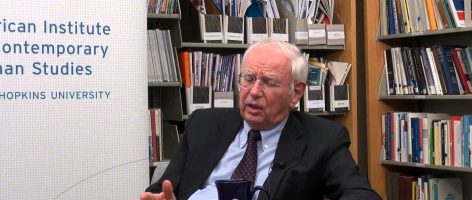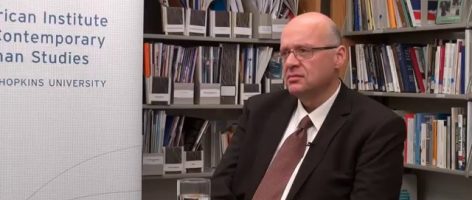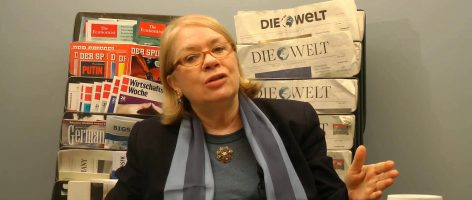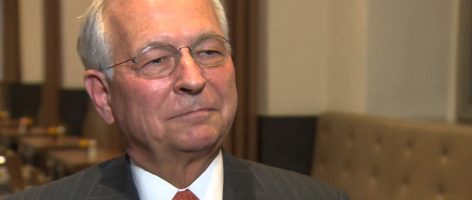Law Land: Germany as a Legal Super Power
German-American Issues 17 Germany has increasingly found itself in a leadership role in the twenty-first century. On challenges ranging from Russian aggression in Ukraine, to the European economic crisis, to …
Bridging the Ocean: Challenges and Opportunities for Transatlantic Cooperation on China
Introduction In 2011, EU Trade Commissioner Karel de Gucht stated that “America and Europe may often bicker, but in the end we know we are each other’s partner of choice.” …
Recent Authors
AGI provides knowledge, insights, and networks as tools to solve the challenges ahead.
Support Our WorkA New Assertiveness? Germany wades into the Syrian conflict with vote for anti-ISIS military mission
Introduction Three weeks after the terrorist attacks in Paris, the German Bundestag approved a military deployment to provide protection, reconnaissance, and logistics to the military campaign against the Islamic State, …
Ukraine—Out of the Spotlight, Out of the West’s Interest? German and U.S. Viewpoints on the Resolution of the Ukrainian-Russian Conflict and Its Security Implications
For all of 2014 and well into 2015, the conflict between Russia and Ukraine over the hostile events in Crimea and the eastern provinces of Donetsk and Luhansk dominated German …
Accepting the Challenge: How German Parties (Can) Innovate
Facing the challenge of a continuously changing societal environment, German political parties are in a state of flux. Recent party reforms such as the initiatives by the Social Democrats (2011) …
Germany ‘s Continuing Strategic Struggle
Germany is a Rechtsstaat—a country anchored in law. The German constitution, or Basic Law, is a mirror of German thinking about its democracy, just as the U.S. constitution reflects American …
Bedingt Abwehrbereit? The German Debate about Cybersecurity and the Value of Intelligence
In today’s interconnected world, we can no longer keep our policy areas separate; what affects security policy also impacts an economy’s prosperity, and the decisions made can have ramifications on …
Eine deutsche Metamorphose: Vom unsicheren Kantonisten zur europäischen Führungsmacht
Deutschland ist zum Vorreiter in Europa geworden: zu einer Führungsmacht, die ihre Legitimität aus dem Engagement für ein zivilisiertes Miteinander zieht. Daraus erklärt sich auch die bisherige Gefolgschaft anderer europäischer …







